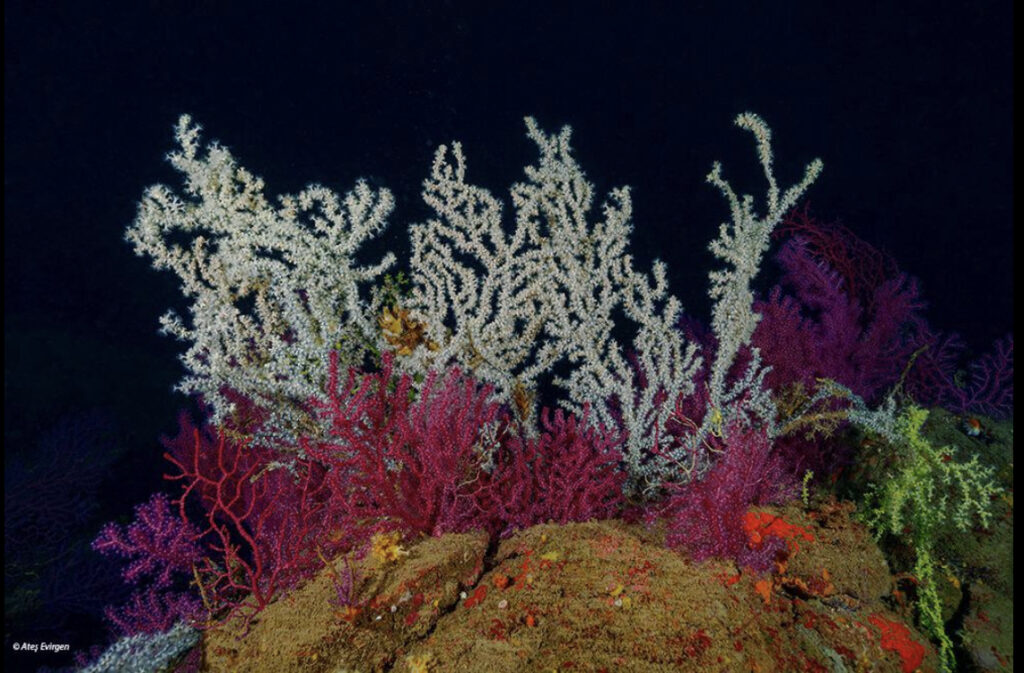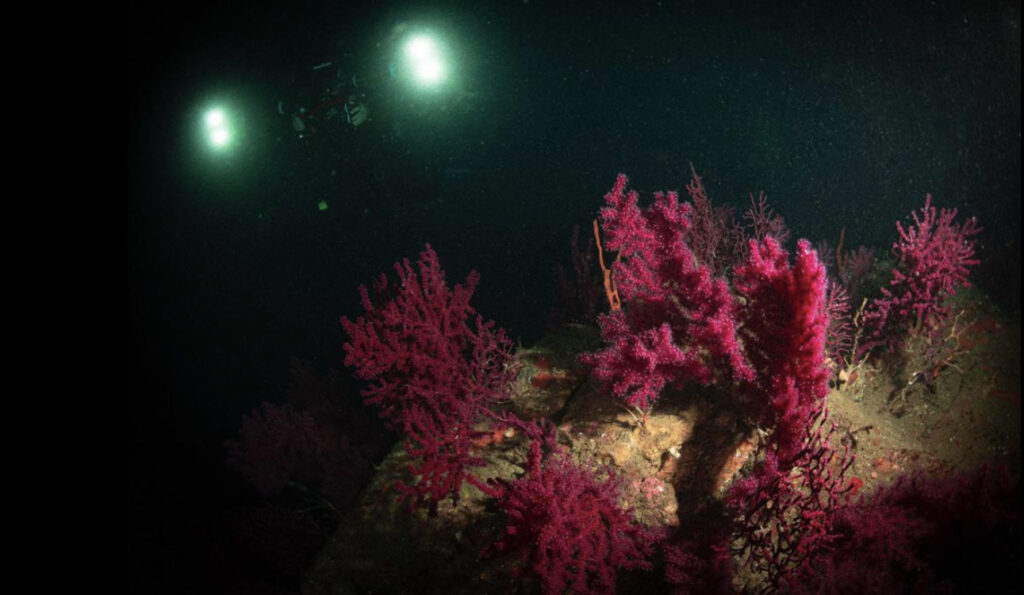Corals in Turkey
There are many species of corals in the waters of Turkey, in the Mediterranean and Aegean Seas, and around Marmara Island. In addition, the Dardanelles Strait is known as the region where coral reef research began in Turkey. In these studies, 27 different coral species have been identified. These species contribute greatly to the ecosystems in our seas and provide habitat for many different species of marine life. In this region, the hard colonial coral known as Cladacora caespitosa and the branched Gold Coral Savalia has been found. The Dardanos Cladocora caespitosa coral reefs are among the rare underwater beauties of Turkish seas and host many different species of living creatures in terms of biodiversity. In recent studies, 806 colonies, both young and adult, were identified within a reef area of 2,000 square meters, and it is thought that 14 of these colonies are over 100 years old. In a study published in 2022, 62 invertebrate species were reported for the first time in the Dardanos coral reef conservation area, with 5 of them being new records for the Turkish marine fauna.
However, the effects of global warming and human activities in Turkey's waters also pose a serious threat to the health of corals.

The health of corals in Turkey is under serious threat due to human activities and the effects of global warming. Marine pollution, overfishing, and construction activities in coastal areas destroy the natural habitats of corals and in some cases, can cause their death. Some coral species in Turkey are also threatened by the invasion of non-native species. To protect corals in Turkey measures such as controlling human activities such as marine pollution and overfishing, identifying and protecting conservation areas, adopting eco-friendly policies, and reducing the use of fossil fuels to mitigate the effects of global warming are necessary.
